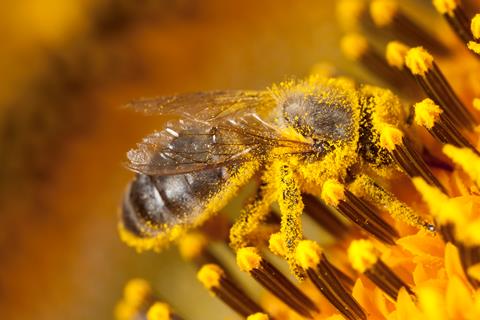
The government has announced plans to impose a total ban on the use of bee-killing neonicotinoid pesticides.
Despite already being banned from general use in the UK, the last government authorised the use of neonicotinoids every year for the past four years through a process known as emergency authorisation.
The Labour government announced on Saturday plans to identify legislative options that would legally close the loophole and prevent the future use of three specific neonicotinoids – clothianidin, imidacloprid and thiamethoxam – entirely, “taking full account of the importance of pollinators”.
Defra said bees and other pollinators were crucial to the agricultural economy, with the economic benefits of pollination to crop production in the UK estimated at £500m a year.
The move – a key Labour manifesto pledge – comes ahead of the publication of a new UK National Action Plan (NAP), which will set how pesticides can be used sustainably. However, the legal requirements for emergency authorisations have not yet changed, with any applications for 2025 considered under the law as it stands.
The announcement was hailed by Compassion in World Farming as “a very welcome step forward”.
Greenpeace was also positive, though it warned more still needed to be done to tackle pesticide use globally. It’s a position supported by Pesticide Action Network UK analysis of government data this month, which revealed foods imported into the UK had been found to have almost twice as many pesticides in them than domestically grown produce.
However, the NFU warned a complete ban on emergency authorisations set a “worrying precedent”, citing how the virus yellows disease had caused crop losses of 80% for some British sugar beet growers in recent years
This ultimately led to the granting of emergency authorisations by the previous government “on the basis of forecast disease pressure, in order to protect the viability of the homegrown sugar beet sector”, the NFU said.
“A healthy environment is vital to our food and economic security,” said environment minister Emma Hardy.
“Protecting bees by stopping the use of damaging neonicotinoids is an important step in supporting the long-term health of our environment and waterways, and our farming sector,” she added.
The government’s commitment to farmers “remains steadfast and we are fully committed to supporting farmers to protect their crops in more sustainable ways”, Defra said. “There has already been progress in this space, including research into new virus-resistant varieties of sugar beet and new alternative pesticide sprays, and we will continue to support this work.”
It comes as the farming sector’s campaign against the government’s inheritance tax changes continued this month, with NFU banners urging it to ‘Stop the Family Farm Tax’ popping up across the country. Campaign group Save British Farming, meanwhile, has been running an appeal “to ask children to write a letter to prime minister Keir Starmer as well as Santa about their wishes for British farming in the new year”.
It said: “We want Sir Keir and his Government to hear personal stories from our children about what this disastrous budget means for farms across the country and we are asking children to write letters to explain their feelings.”
Starmer further enraged the farming sector last week in an appearance in front of the Commons Liason Committee where he said the changes to IHT eligibility through tax reliefs was needed to raise cash for the Treasury coffers – rather than a move to tackle tax avoidance by wealthy farm owners.
It was now clear the IHT changes were “an indiscriminate revenue-raising measure with no thought given to who it impacts”, said NFU president Tom Bradshaw.
“What’s worse is that the government has clearly forgotten the reason agricultural inheritance tax reliefs were brought in in the first place – which was to ensure that farms would not be sold or broken up following the death of the owner and could continue to produce high quality British food through each generation. It’s clear that this government has entirely broken with that premise, and it will be farming, then its associated industries, and then consumers who will bear the impact.”







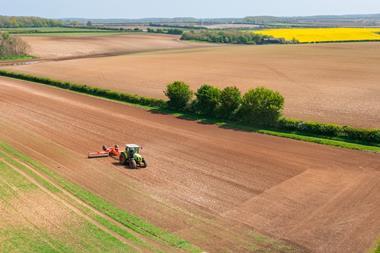
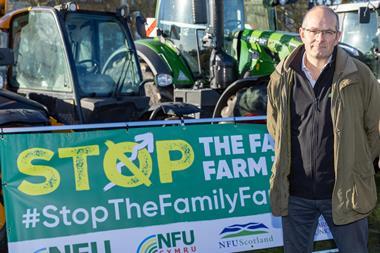

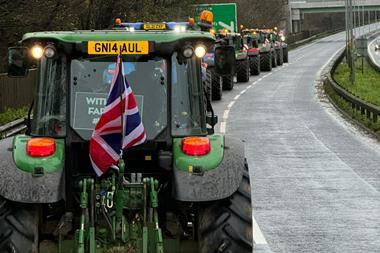

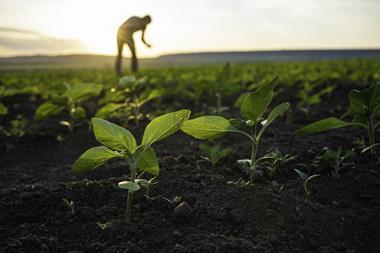






No comments yet